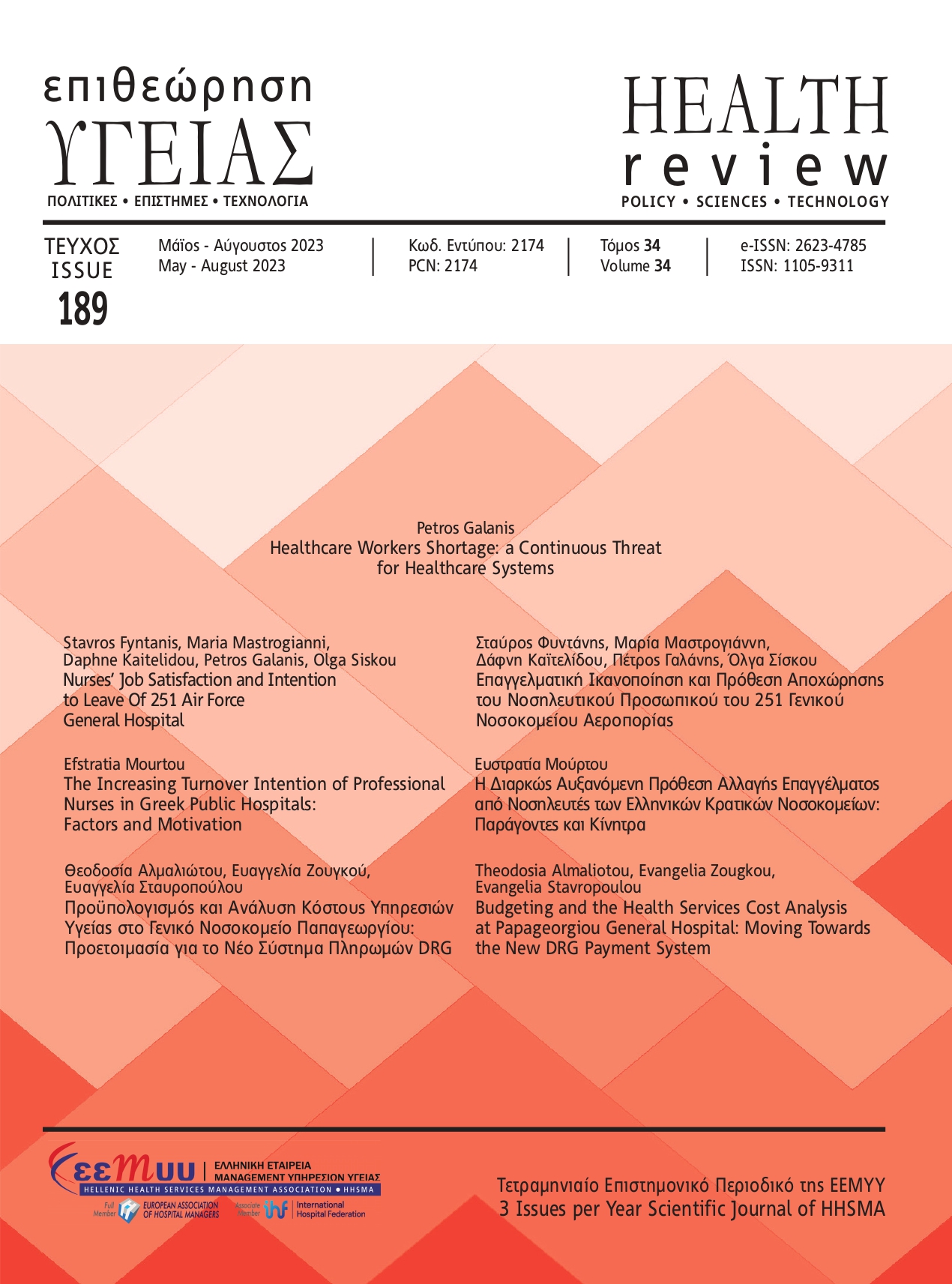Abstract
Healthcare jobs and especially medicine and nursing profession continue to face big shortages. The situation became even worse during the COVID-19 pandemic, since the existing inadequate healthcare staff experienced high levels of burnout. In this context, both the physical and mental health of healthcare workers (HCWs) deteriorated, facing problems such as anxiety, stress, depression, post-traumatic stress, and insomnia. A projection from the Organization for Economic Co-operation and Development (OECD) before the pandemic reported that there would be a shortage of 400,000 doctors across 32 OECD countries and 2.5 million nurses across 23 OECD countries until 2030. These numbers are now expected to increase significantly following the devastating effects of the pandemic. For instance, Abbasi et al. found that 40% of nurses and 23.8% of doctors planned to leave their jobs during the first year of the pandemic.
Moreover, during the pandemic another work-related issue is emerged among HCWs: the quiet quitting phenomenon. Quiet quitters limit their work effort to the minimum and they do not go above and beyond.6 In this context, HCWs do not leave their jobs but work without passion and enthusiasm. A recent study in Greece with a sample of 1760 HCWs revealed that 57.9% were quiet quitters.7 More interestingly, prevalence of quiet quitting was higher among nurses compared to other HCWs (53.8% vs. 40.3%). Several other work-related factors such as job burnout and shift work affected levels of quiet quitting among HCWs.
